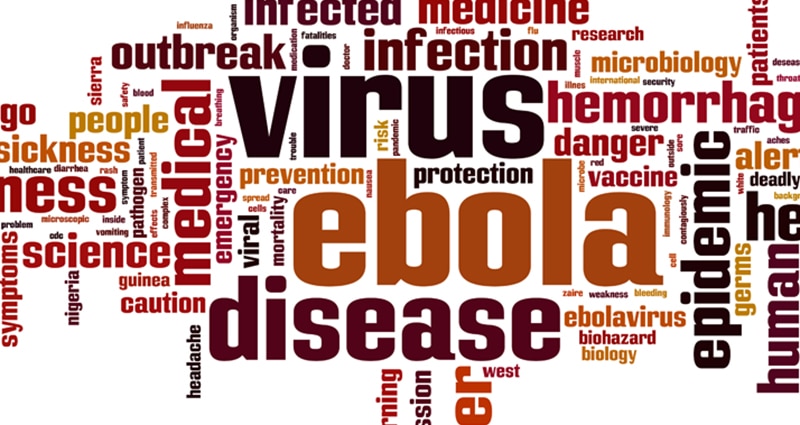Are You Prepared to Manage a Communicable Disease within Your Flight Operation?

With Ebola and other communicable diseases in the current international headlines, it’s a good time for everyone to review the standard operating procedures their travelers should be practicing every day. Having a plan to support these best practices, along with the availability of the best resources, is critical.
The Ebola outbreak is evolving daily, so it’s vital that companies engaged with the affected and surrounding countries keep up to date with the latest information.
International SOS and Medaire, Inc., have teams working around the clock monitoring developments and providing updates via a dedicated complimentary website – www.internationalsos.com/ebola. This free online resource helps educate and advise travelers about the Ebola outbreak. The site can be checked regularly for the latest travel advisories, and provides a wide scope of related information and analysis along with various tools and resources.
“All contagious diseases should be managed with thorough assessments, advice and assistance. A well-prepared aviation solution always includes equipment, education, and expertise to aid in the prevention, identification, and management of infectious diseases,” says Paulo Alves, MD, MSc, Global Medical Director of Aviation Health at MedAire, Inc. Reminder: A key element is having this safety management plan in place BEFORE it is needed.
Best Practices:
- Ensure crew and passengers are fully briefed prior to travel on the prevailing threats at destination, as well as how to mitigate risks.
- Develop, practice and utilize a comprehensive travel safety plan in the event of a medical emergency or serious security incident. This should include advice and email medical and security alerts before, during and after travel to any of the affected countries, especially those that are recognized as high risk regions (i.e., West Africa: Guinea, Liberia or Sierra Leone).
- Cabin crew should follow proper hand hygiene and routine infection control measures.
- Treat all body fluids as though they are infectious.
- If in-flight cleaning is needed, cabin crew should follow routine airline procedures using personal protective equipment available in a universal precaution kit.
- If a traveler is confirmed to have had an infectious disease (such as Ebola), on a flight, the Centers for Disease Control (CDC) must be notified. The CDC will conduct an investigation to assess risk and inform passengers and crew of possible exposure.
Equipment:
- Stock aircraft with universal precaution kits to protect passengers and crewmembers from the risk of exposure to a communicable disease. These kits should contain long-sleeved gowns, booties, face masks, hand sanitizers, gloves, biohazard bags and disinfectant materials to protect against blood-borne pathogens.
- Instructions on how to don, remove, and dispose of personal protection equipment should be part of the kits.
- The kit contents should meet or exceed the U.S. Centers for Disease Control’s (CDC) and International Civil Aviation Organization’s (ICAO) recommendations for personal protection safety measures needed onboard an aircraft in times of increased public health risk.
Education:
- Participate in a crew/passenger management of in-flight illness and injury training course every year.
- Ensure that the educational course includes training on blood-borne pathogens, communicable diseases, CPR instruction, automatic external defibrillator (AED) practice and current events updates.
- Crew and passenger health briefings should be conducted prior to travel and updates should be provided throughout the trip.
Expertise:
- Engage in a comprehensive service plan from an aviation medical travel risk assistance company that excels in managing health and security risks with 24/7 global support.
- Prepare before the flight, keep current with alerts/advisories and updates during travel and continue to monitor health post-travel or at destination.
- Maintain a pre-flight passenger screening/ fitness to fly plan.
- If you suspect a passenger or crewmember has an infectious disease they are encouraged to contact their qualified 24/7 medical provider for a pre-flight assessment.
- Medical teams should be well-versed in the determining the signs and symptoms of infectious disease. They should be able to provide recommendations of the person’s fitness to travel and provide resource referrals, as necessary.
If communicable disease is suspected in-flight:
The U.S. Code of Federal Regulations [42 CFR 70.4 and 71.21(b)] contains death and illness reporting requirements for flights engaged in interstate traffic and international flights arriving into the United States, respectively, and are listed in part below.
- 42 CFR 70.4 requires the commander in charge of the aircraft (interstate flights) to report before arrival a case or suspected case of communicable disease among passengers or crew members to the local health authority with jurisdiction for the arrival airport.
- 42 CFR 71.21(b) requires the commander of an aircraft (international flights) destined for the United States to report before arrival any deaths or illnesses (as defined in the regulations) among passengers or crew members to the Centers for Disease Control and Prevention’s (CDC) quarantine station.
If passengers or crewmembers exhibit reportable symptoms:
- Immediately inform the captain of the situation.
- Contact your 24/7 medical assistance company for assistance.
- Your medical provider should assess the illness and if requested, be able to assist the captain by contacting their operations or making direct contact with the CDC Quarantine Station at or closest to the arrival airport.
*Note: The notification procedure may be somewhat different in communicating with foreign aircraft as opposed to U.S. aircraft.
Expectation for your 24/7 aviation medical assistance center:
- Ability to provide assessment of the ill person’s symptoms and advice on whether the symptoms meet the reporting criteria.
- Capacity to aid in contacting the CDC, if requested.
- Offer updates on communicable diseases and other medical-related alerts via their company portal or travel risk app (i.e., MedAire Trip Ready app).
- Deliver advice and educational programs for your staff on travel health procedures and cleaning of the aircraft.
View Short Educational Video on EBOLA and Other Important Information and Resources at www.internationalsos.com/ebola
RESOURCES / SOURCES:
Developments and current updates:
www.internationalsos.com/ebola
Information on the symptoms that require reporting:
CDC Guidance for Air Travel Industry on Reporting of Onboard Deaths or Illnesses
What the Federal Aviation Association (FAA) says about Ebola:
Press Release – FAA Statement on Ebola
Proper personal protection procedures:
Crew: The CDC has posted the following video for Airline crew. The safety topics and procedures are also applicable to the business aviation community. https://www.youtube.com/watch?v=DgOsEFtLDlU
Business travelers: International SOS video for prevention and protection against Ebola. http://vimeo.com/user20751789/review/107013040/5b1f1f933e
Extensive resources and advice for air crew:
Managing ill people on aircraft if Ebola is suspected
Guidance for airline cleaning personnel
How to clean infected areas
http://www.cdc.gov/quarantine/air/managing-sick-travelers/ebola-guidance-airlines.html
Comprehensive medical and security travel risk solutions resource:
Aviation-specific Universal Precautions Kits (UPK), medical advisory services, medical crew training. http://www.medaire.com/

Flight departments around the world rely on MedAire, an International SOS company, to reduce their travel safety risks. Crews are trained on the resources to manage in-flight illness and injury with onboard medical equipment and telemedicine assistance. On the ground, passengers and crew have one resource for medical referrals; guaranteed payments for medical expenses; assistance with lost documents and prescriptions; online and e-mail travel advisories; evacuation support and a host of other services.
http://www.medaire.com/
© 2025 MedAire. All Rights Reserved.
Next ArticleRelated Posts

Peer Support Programs: Transforming How Aviation Addresses Mental Health
While the industry has evolved in acknowledging these issues, stigma still impedes many from seeking available resources. Here, the significance of Peer Support Programs (PSPs) has been increasingly recognized. These initiatives offer a confidential haven where concerns can be openly discussed, free from judgment.

Understanding the Challenge of Turbulence-Related Injuries in Business Aviation
The challenge of managing air turbulence in business and private aviation is becoming increasingly evident due to the growing number of turbulence-related incidents affecting aircraft operators across the industry.

